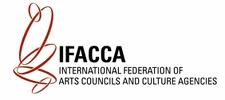The International Federation of Arts Councils and Culture Agencies has just released a report called National Arts Advocacy Campaigns: Overview of Case Studies and Good Practice. It’s based on “desk research” and responses to a survey circulated in August 2009 to IFACCA members, and is described as “exploring a range of campaigns currently being undertaken or planned by national arts funding agencies.”
 IFACCA has members in 77 countries, including the U.S., which is represented by the NEA, the NEH and the President’s Committee on the Arts and Humanities.
IFACCA has members in 77 countries, including the U.S., which is represented by the NEA, the NEH and the President’s Committee on the Arts and Humanities.
I can’t say there are huge revelations in the report: Are there ever in things like this?
But I was struck by one sentence in the summary, in the section about communications: “Campaigners should be aware that the term ‘the arts’ can be vague and can have less than desirable associations.”
That’s an honest statement that I’ve rarely, if ever, seen stated so baldly — and yet it may well be important in setting the tone about advocating for “the arts.” Arts-lovers often assume that everyone agrees with them about the arts — how could they not? But when you think about it, it’s pretty clear that some “arts” are extremely off-putting to some people. That has to be factored in when efforts are made to widen appreciation for and participation in the arts.
The whole 74-page report is a good primer, explaining the kinds of campaigns possible (grass roots, grass tops — that’s a new name for me — lobby, etc.), and offering something of a check list for advocacy campaigns and communications strategies. You can see the report here; IFACCA’s website is full of additional information and several useful links.
